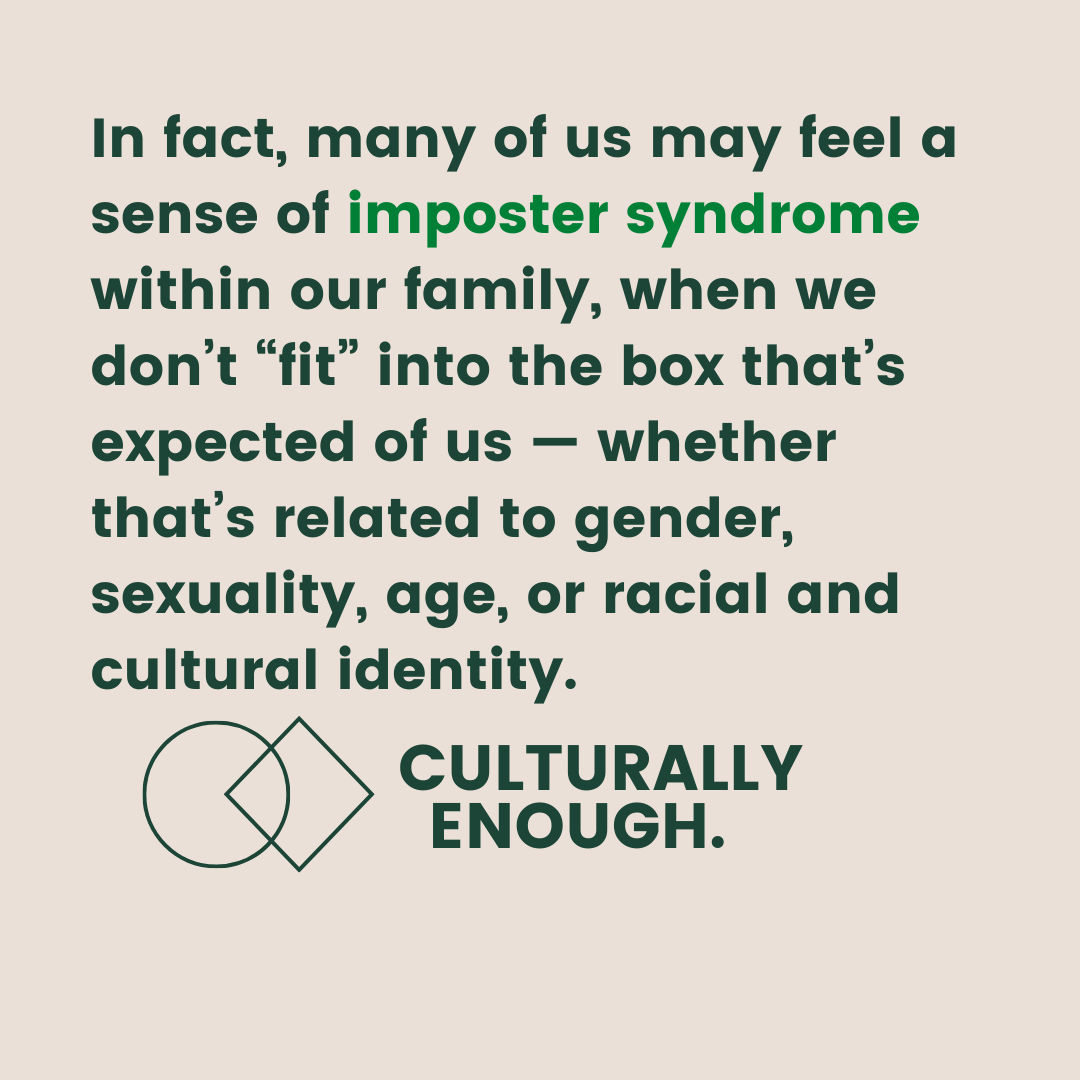How do culture, family, and identity inform your feelings of imposterism?
Unpacking family labels, systemic narratives, and more.
Growing up, I was always told that nothing is more important than education. And I get it, my immigrant dad was raised in his household growing up to believe that education is the path to success and stability.
Fast forward to his experiences as an immigrant in his early-mid twenties, first to the UK then to the US, and his beliefs were even more cemented by the systemic messaging he was receiving. Prove your value to this economy. And for my parents, education and degrees were the way to prove they were valuable.
I agree with my dad when he says that no one can take our education away from us, but I disagree that the only way to be educated is through academic institutions. In fact, the messaging I received made me feel that if I wasn’t successful or perfect in school then nothing else mattered and I was a failure. It wouldn’t matter if I tried my hardest, if I changed my mind on what I wanted to study, or if I did other things that taught me valuable lessons. Life experiences didn’t make sense to my parents, and when I struggled in school it disrupted and destroyed my entire self-concept.
I started to internalize this idea that I am not good enough and it was solidified by other cultural and systemic messages I was faced with through my life.
It didn’t help that I was compared to my much older brother who ended up being a doctor and a lawyer. I would never be enough. It took my decades to really work through this and start to believe that my effort is more important than the outcome; that my past experience doesn’t dictate my future experiences; that learning is valuable in every form; that enoughness looks different for each of us.
Family Dynamics and Imposter Syndrome
Research suggests that if you grew up in a family system that was highly demanding, where you were expected to be high achieving, or with dynamics that led to perfectionist behaviors, you are more likely to struggle with imposter syndrome.
My personal example above is one way we may be fed messages about what it means to be or look “enough” in our families. In fact, many of us may feel a sense of imposter syndrome within our family, when we don’t “fit” into the box that’s expected of us — whether that’s related to gender, sexuality, age, or racial and cultural identity.
Reflect and comment: Think about a family label you were given as a kid. Maybe you were the “strong” one or the “sensitive” one or the “smart” one or the “aloof” one. How did this affect your relationship with other family members, and how did this inform a level of imposterism as you got older?
Keep reading with a 7-day free trial
Subscribe to Culturally Enough. to keep reading this post and get 7 days of free access to the full post archives.




